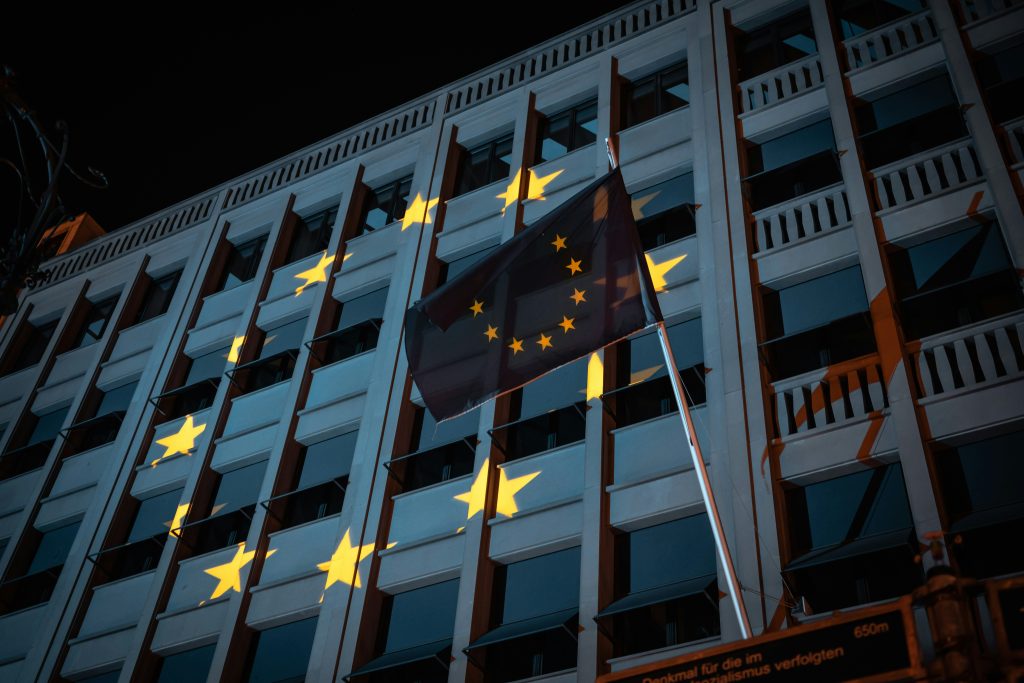EU court ruling challenges FIFA’s legal dominance, opens door to broader scrutiny across Europe
3 min read
"The European Union flag glows against the night as political tensions mount across the bloc."
EU Court Shakes FIFA’s Legal Shield, Empowers Local Courts in Sports Disputes
European Court of Justice ruling strips FIFA of legal immunity across the EU.
EU court overturns Swiss legal monopoly on sports disputes
A historic ruling from the European Court of Justice (ECJ) has disrupted decades of legal tradition by allowing European courts to challenge sports rulings that were previously confined to Switzerland. This move targets the longstanding dominance of global sports bodies like FIFA and the Court of Arbitration for Sport (CAS), signalling a major shake-up in how sports-related legal matters are handled across Europe.
Power shifts away from Switzerland
For years, Switzerland has been the legal stronghold for international sports arbitration. Institutions like FIFA, the International Olympic Committee, and CAS are all headquartered there, giving Swiss courts the final say on disputes ranging from athlete bans to transfer disagreements. But this ECJ ruling now allows national courts in EU countries to independently review such decisions to ensure they align with European Union laws and values.
Ensuring fairness in sports rulings
The ECJ emphasized that CAS rulings must be open to meaningful judicial review, particularly when they concern fundamental EU principles. “Awards made by CAS must be amenable to effective judicial review,” the court noted, highlighting the importance of national courts carrying out thorough examinations to verify fairness and compliance with EU law.
Belgian club’s decade-long legal push
The case at the centre of this ruling dates back nearly a decade. Belgian football club RFC Seraing and Maltese investment firm Doyen Sports contested FIFA’s ban on third-party ownership of player transfer rights—a practice where external investors, not clubs, control athletes’ economic rights. They argued in a Brussels court that FIFA’s rules infringed upon EU competition law. While the ECJ did not directly decide on the legality of third-party ownership, the ruling delivered a major blow to the legal immunity FIFA and similar bodies have long enjoyed.
CAS no longer untouchable in Europe
Since its creation in 1984, CAS has been the top authority for resolving sports conflicts, covering high-profile cases from Olympic doping scandals to football transfer bans. With around 950 cases per year—many involving football CAS has enjoyed a near-absolute status, with appeals only permitted in Swiss courts under strict conditions. FIFA has also been a major financial supporter of CAS, contributing nearly 2.5 million Swiss francs ($2.75 million) last year.
New legal pathway for players and clubs

The ECJ’s decision opens the door for athletes, clubs, and agents to bring their grievances before courts in their own countries rather than relying on the Swiss-based CAS system. Legal analysts believe this could inspire a wave of challenges against disciplinary actions, transfer restrictions, and other federation rulings, shifting the legal landscape in favour of individuals and clubs across the continent.
Impact spreads across European football
This landmark ruling follows a pattern of recent legal setbacks for football’s governing bodies. The ECJ previously ruled against FIFA and UEFA in the European Super League controversy and the Lassana Diarra case, both of which reinforced the supremacy of EU competition law. These consistent rulings signal a shift towards greater oversight of sports bodies that previously operated with minimal external interference.
No comment yet from FIFA or CAS
As of now, neither FIFA nor CAS has issued a formal response to the ECJ ruling. However, the decision is expected to force governing bodies to reassess how they enforce regulations across EU member states. The once iron-clad legal protections granted by Swiss jurisdiction may now be rendered obsolete within European borders.
A new era of sports governance begins
This ruling marks the end of the era where international sports disputes could be settled quietly in Switzerland without scrutiny from broader legal systems. With the door now open for EU courts to intervene, the power dynamics in global sports governance are shifting dramatically. Players, clubs, and investors may now find greater justice and accountability through their own national legal systems.






